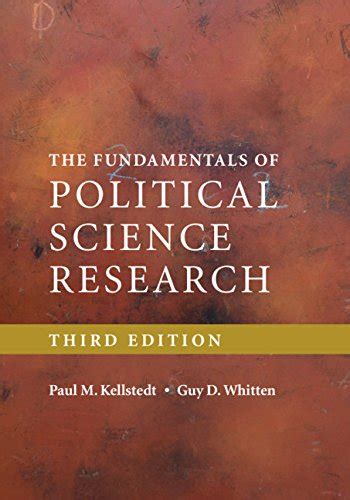Political science is a captivating field that unravels the intricate workings of power, governance, and human behavior in society. Its vast literature offers an unparalleled opportunity to enhance our understanding of the world around us. Here are some of the most compelling political science books that will transform your perspective and broaden your intellectual horizons:

The Essential Readings
-
“Democracy in America” by Alexis de Tocqueville: A monumental work that examines the foundations and future of American democracy. Tocqueville’s keen observations and incisive analysis provide a timeless framework for understanding democratic societies.
-
“The Prince” by Niccolò Machiavelli: A provocative and controversial treatise on the art of politics. Machiavelli’s pragmatic and cynical insights challenge traditional notions of morality and offer a glimpse into the ruthless realities of power.
-
“Leviathan” by Thomas Hobbes: A philosophical examination of the nature of government and the social contract. Hobbes’s concept of the “sovereign” remains a cornerstone of political theory.
Politics and Power
-
“The Dictator’s Handbook” by Bruce Bueno de Mesquita and Alastair Smith: A groundbreaking analysis of the dynamics of dictatorship and the strategies dictators use to maintain power.
-
“Power in Organizations” by Jeffrey Pfeffer: A seminal work that explores the nature and distribution of power within organizations. Pfeffer’s insights provide valuable lessons for understanding organizational behavior and leadership.
-
“Bureaucracy: What Government Agencies Do and Why They Do It” by James Q. Wilson: A comprehensive study of bureaucracy and its role in modern society. Wilson’s analysis reveals the challenges and opportunities associated with large-scale administrative systems.
Political Behavior and Participation
-
“The American Voter” by Angus Campbell, Philip Converse, Warren Miller, and Donald Stokes: A classic study that revolutionized the study of political behavior. Campbell et al.’s research identifies the key factors that influence voting decisions.
-
“A Theory of Political Ambition” by David Mayhew: A groundbreaking work that explains the motivations and behaviors of politicians. Mayhew’s insights provide a deeper understanding of electoral competition and political strategy.
-
“Why People Don’t Trust Government” by Joseph S. Nye, Philip D. Zelikow, and David C. King: A timely and insightful examination of the erosion of trust in government institutions. Nye et al. offer a sobering analysis and practical recommendations for rebuilding trust.
International Relations
-
“The Clash of Civilizations and the Remaking of World Order” by Samuel P. Huntington: A controversial and influential work that argues that cultural and religious differences are the primary drivers of conflict in the post-Cold War era.
-
“The Tragedy of Great Power Politics” by John Mearsheimer: A realist analysis of international relations that posits that states are driven by the pursuit of power and security. Mearsheimer’s theory has significant implications for understanding global politics.
-
“Global Politics” by Andrew Heywood: A comprehensive textbook that provides an overview of the key concepts and theories in international relations. Heywood’s clear and concise writing style makes this an accessible introduction to the field.
Public Policy
-
“How the Government Can Do More and Spend Less” by Peter Van Doren: A practical guide to improving government efficiency and effectiveness. Van Doren’s insights provide valuable lessons for policymakers and public administrators alike.
-
“The Responsive City: Engaging Communities and Revitalizing Urban America” by Benjamin R. Barber: A visionary work that advocates for participatory democracy and citizen engagement in urban planning and development. Barber’s ideas have influenced urban policy and practice worldwide.
-
“The Culture of Federal Policymaking” by Steven S. Smith: A fascinating study of the cultural factors that shape government policy. Smith’s analysis reveals how values, norms, and beliefs influence decision-making processes.
Additional Tips for Selecting Political Science Books
- Consider your interests and academic focus to narrow down your search.
- Read reviews and consult with experts in the field to identify highly regarded works.
- Look for books that offer a balanced perspective and engage with multiple viewpoints.
- Choose books by authors who are recognized authorities on the subject matter.
- Be open to exploring both classic and contemporary texts for a comprehensive understanding.
Conclusion
Embarking on a journey through these exceptional political science books will not only expand your knowledge but also challenge your assumptions and inspire critical thinking. By delving into the complexities of human behavior, power dynamics, and global affairs, you will gain a deeper comprehension of the world around you and become a more informed and engaged citizen.
